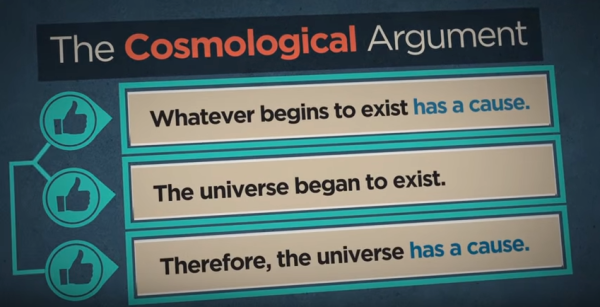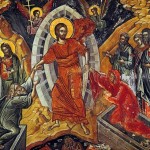Is the Kalam Cosmological Argument a Sound Proof for God?
by Brandon Vogt
Filed under The Existence of God
NOTE: A couple weeks ago, we kicked off a new series of posts where we'll introduce one of today's most popular arguments for or against God, and then invite open-ended discussion. The goal is not to offer a thorough defense or refutation of the argument in the original post, but to unpack it together, as a community, in the comment boxes. The first argument we discussed was Alvin Plantinga's modal ontological argument for God. Today, we'll look at the kalam cosmological argument.
The kalam cosmological argument has grown in popularity today, mostly through the work of Dr. William Lane Craig, an Evangelical Protestant philosopher who dedicated his doctoral work to the argument in 1979. It features heavily in many of Craig's debates, books, and articles.
However, the argument stems back at least to Al-Ghazali, an 11th-century Islamic philosopher, and, in part, to Aristotle.
The video presents the argument like this:
Premise 1: Whatever begins to exist has a cause.
Premise 2: The universe began to exist.
Conclusion: Therefore, the universe has a cause.
The argument appears deceptively simple. But as scholars have debated its terms and premises over the years, they've quickly given rise to much larger questions about cosmology, physics, mathematics, and the philosophy of time.
Many critics dismiss the kalam argument for failing to do what it never attempts: conclusively prove the existence of the God of Christianity. In fact, the conclusion simply ends with "a cause," whatever that is. However, once the conclusion is accepted, you can begin deducing certain qualities about the cause of the universe. For example, since the universe contains all matter and time, the cause of the universe—which must transcend the universe since nothing can cause itself—must be spaceless, timeless, and immaterial. This of course doesn't fully describe the God of Christianity. However, it does describe a pretty big slice of him—a slice far too large for most atheists. (I've yet to meet an atheist who believes in a transcendent, spaceless, timeless, and immaterial cause of the universe.)
So what do you think? Is the kalam cosmological argument a sound proof for God? If not, how does it fail?
Related Posts
Note: Our goal is to cultivate serious and respectful dialogue. While it's OK to disagree—even encouraged!—any snarky, offensive, or off-topic comments will be deleted. Before commenting please read the Commenting Rules and Tips. If you're having trouble commenting, read the Commenting Instructions.













